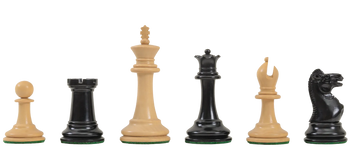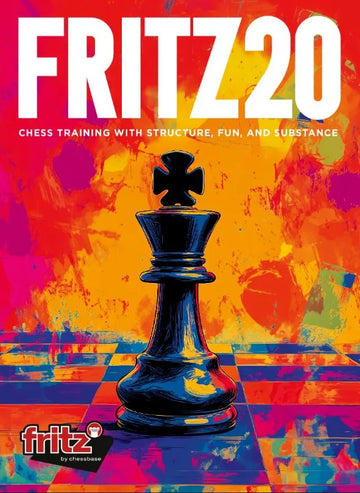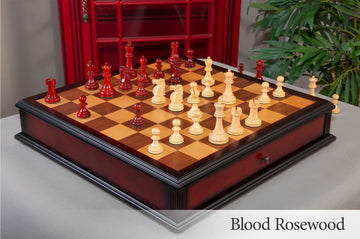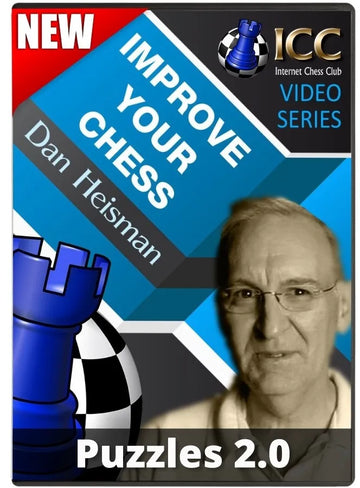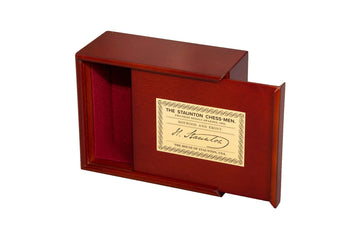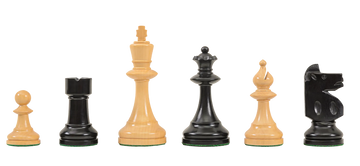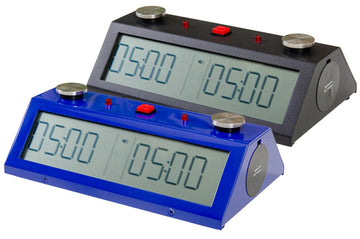The Best Reasons To Hire A Chess Coach
Have you ever thought about hiring a chess coach? It might just be the best investment in chess you’ll ever make. While AI chess coaches are becoming increasingly popular for improving at chess, nothing can beat a real chess teacher with decades of experience under their belt.
A chess tutor isn’t only there to train you in the hard skills of technical ability. A good coach will also help you develop the essential soft skills of a positive mindset, discipline, and effective pressure management.
In this article, we reveal eight reasons why hiring a chess coach might be the right option for you to take your game to the next level.

8 Great Reasons to Hire a Chess Coach
Reviewing Your Games
One of the most instrumental roles of a chess coach is to analyze your previous games with you. Self-analysis of chess games is a good start. Using chess engines to help you analyze your games is better. However, having a much stronger chess player review your games alongside you is invaluable.
By examining your games with you, your chess coach will be able to explain what you did right and what you could improve on. Exploiting tactical opportunities, activating all of your pieces, and spotting an opponent’s weakest squares are just a few of the things your chess tutor could help you become more aware of so that you’re primed to improve upon your inaccuracies next time.
Analyzing your games also helps your chess tutor get to know your playing style, so they’re better able to tailor the perfect chess lessons and chess training regimen for you.
Tailoring the Perfect Training Plan for You
As your coach gets to know you better, they’ll spot your strengths, weaknesses, and blind spots that aren’t so easy to recognize on your own. Based on their assessment, your coach can formulate a personalized chess training plan to help you improve rapidly.
Say your coach has analyzed your games and seen that you’re consistently losing pieces due to overburdening your defenders. In response, they’re likely to assign you specific types of chess puzzles to help you defend pieces properly. Likewise, if you’re frequently running out of time in your chess matches, your coach will tailor lessons to improve your time management skills.
A good chess training plan will typically consist of both one-on-one lessons with your chess coach and homework that they assign to you. By formulating a solid training regimen and holding you accountable for completing the tasks, a coach is indispensable for keeping you motivated and disciplined.

Opening Repertoire
A good chess coach is like a walking, talking encyclopedia of chess knowledge. After decades of experience in the game, they’ll have accumulated an extensive opening repertoire to share with you.
This puts you at a significant advantage compared to those who study chess on their own. While books and chess courses are helpful, they won't be tailor-made for your level and style of play.
Because your chess coach knows your playing style, they’ll know which openings will suit you best. If you’re an attacking, tactical player, they might suggest the Danish Gambit or Vienna Game. If you’re a more cautious positional player, then perhaps the Queen’s Gambit or London System.
By tailoring openings to your playing style, your chess teacher will save you hours (maybe even years!) of searching for the perfect openings. A well-versed chess tutor should also know which openings work best at different levels. That way, they'll know how to help you find the perfect openings for countering opponents of a similar rating.
Middlegame Strategy
While many aspects of chess can be readily learned from chess books and videos, middlegame strategy often requires a more nuanced understanding. Because middlegames are so complex, it's extremely helpful to have a coach walk you through the principles that you’ll be applying in a wide range of positions.
Perhaps you’re learning how to wield a pawn minority attack. Or your coach is explaining the best strategies for opposite-side castling. Being able to sit opposite your chess coach and have a live dialog is invaluable for these complex lessons. Since the concepts can be complicated to grasp, you’re bound to have lots of questions to ask. A book or a chess video can’t talk back to you, but a chess coach can!

Endgame Technique
For most beginner chess players, the endgame is the weakest part of their game. While the opening and middlegame can be played largely on a broad understanding and intuition, endgames often require specific techniques and strategies to achieve a win.
There’s nothing worse than throwing away a winning position to an opponent who has superior endgame know-how to you. Luckily, chess coaches know exactly which endgame principles are essential to learn so that you can consistently convert an advantage into a win.
For example, a good coach will make sure you know how to perform checkmate with a rook and a king, the value of passed pawns, and how to avoid stalemate. This way, all of your hard work in the opening and middlegame doesn't have to go to waste!
Moral Support
A good chess coach is not just a teacher but a mentor. He or she will celebrate your victories with you, console you on your losses, and provide you with moral support through the highs and lows of your journey.
Because a good chess coach has seen it all before, they can help you through the undulating terrain of the journey. They’re there to increase your self-belief where it’s needed or bring you back down to earth when you’re getting overconfident!
Chess isn’t an easy game. The weight of making a careless mistake in an important tournament can be overwhelming. Sometimes you might even feel like quitting altogether. That’s when your coach’s pep talk will prove indispensable for your next crucial match.
Someone to Answer Your Questions!
While learning chess, it’s normal to have a million questions! When you lose a game, where did you go wrong? Were you right to trade queens so early on? If your opponent offers a draw, what do you need to consider?
Although chess forums and online resources can help answer some of these questions, being able to dialog with a chess master will provide much greater insight. The answers are often nuanced and may require extensive dialogue to grasp in a meaningful way.

What’s more, a good chess coach is going to see what you are really asking! While you might think you’re asking a question about a specific opening variation, your coach may spot that you haven’t grasped a fundamental opening principle. In that case, they’ll offer you a much more valuable lesson that you can apply to many situations.
As chess students, we often get caught up in the details of our games. The chess coach, however, is there to spot the overarching principles that we haven’t fully grasped. With their bird’s-eye view, a good coach sees your real dilemma and provides solutions that will help across the board.
Inspiration
High-quality chess coaches tend to be those who have already undergone a substantial, possibly even illustrious, career in the game. Just like you, they started as beginners, and each one will have their own unique story of how they rose to playing chess at a high level.
Your coach’s story can serve as a huge inspiration to your own chess journey. Perhaps your coach will let you in on the training program that helped elevate their Elo by 300 points. Or they share the tournament preparation routine that helped them achieve a landmark victory.
Whatever their story, your coach is bound to have had many experiences to inform your own journey. Not to mention their virtuous qualities that you can aspire to emulate. Knowing that your chess coach rose from humble beginnings to a prestigious level can help you to see that you can, too!

Conclusion
While chess books, videos, and chess puzzles are all excellent at improving your chess. The greatest help of all is likely to be a good chess coach.
Not only will a good coach help you with technical skills like opening repertoire and endgame technique, but they’ll also motivate, mentor, and inspire you with their superior level of experience.
The best chess coach is one who will recognize your strengths and weaknesses to formulate the perfect training program for you. By setting goals and holding you accountable. Your coach can help push you to the next level like nothing else can.
Frequently Asked Questions
The price of chess coaching varies wildly. These days, you can find beginner chess coaches on websites like upwork.com offering their services for just $10 per hour or so! Some will even offer you a free trial lesson to get you started.
At the other end of the spectrum, grandmasters typically charge at least $100 per hour and sometimes a lot more! Depending on a chess teacher’s experience, you’ll find prices ranging everywhere in between, too.
If you’re serious about improving your chess, a good chess coach is one of the best investments you could make. A good chess coach is not just there to elevate your chess skills but is also a mentor to push you to the next level.
If you’re more of a casual chess player, however, there are plenty of good alternative resources online. Our chess blog, for example, offers numerous insights into effective openings for every level, tactical skills, and strategic awareness. Chess books and chess DVDs are another excellent way to study chess independently.
A good coach performs multiple roles in improving your chess. By analyzing your games and style of play, your coach can tailor a training plan that addresses your weaknesses and enhances your overall game.
A chess coach will also set you homework and hold you accountable to fulfill your tasks so that your chess training schedule is instilled with rigor and discipline.
Because the hourly rate that chess coaches charge varies significantly, so does their potential income. While a grandmaster might earn $10,000 per month from coaching, someone charging $10 per hour would only make around $ 1,000 per month if they coached twenty-five hours per week.
Hiring a chess coach as a beginner isn’t a necessity, but it’ll undoubtedly help you improve faster! A chess coach can help children and beginners learn the rules of chess, master basic tactics, and make the learning process enjoyable.
Additionally, joining a chess club is a fantastic way to play chess with others of a similar level. It also offers you the chance to pick up free tips from stronger chess players!

